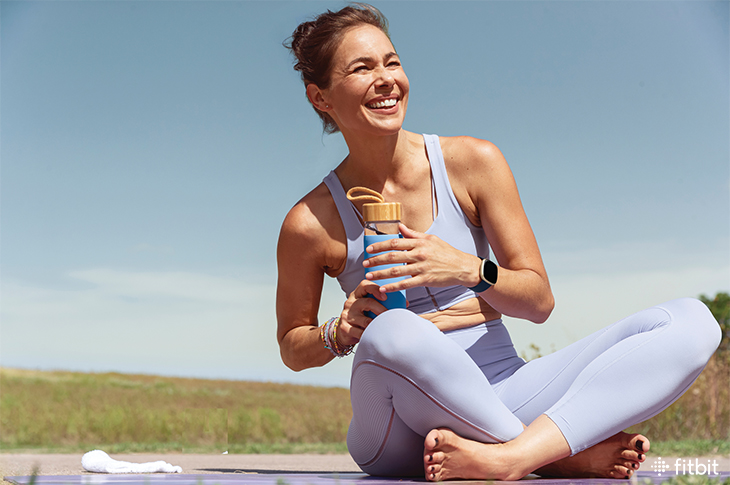
The phrase “self-care” gets a lot of buzz these days, with well-being experts regularly talking about the importance of doing things like taking a bath, going for a walk, and connecting with friends. But why exactly is self-care so crucial? It turns out that nurturing your physical, emotional, and spiritual health sets off chemical reactions in the brain, leading to some pretty major benefits. Keep reading to find out what happens when you take a moment to do something you enjoy, and how to make self-care a regular part of your life.
What Self-Care Does to the Brain
You know how doing something you enjoy, whether it’s cuddling with your dog, spending an hour in your garden, or catching up with your old roommate, can make you feel all warm and fuzzy inside? That’s actually due to chemicals. “These kinds of actions stimulate neurotransmitters in your brain that release things like oxytocin and endorphins—they make you feel good!” says Paula Gill Lopez, PhD, associate professor and chair of the department of psychological and educational consultation at Fairfield University.
For example, research shows that oxytocin, released during social interactions and other activities, decreases stress and anxiety and increases feelings of calmness and well-being. Endorphins, which can bring on feelings of pleasure and reduce pain, are released during activities like exercise, laughter, and massages. And serotonin, which is released when you get outside on a sunny day or do something active, can banish a bad mood.
There is also the impact on your nervous system. “When you’re kind and warm and supportive toward yourself, you decrease your sympathetic response (a.k.a. fight-or-flight mode) and increase your parasympathetic response, which lowers cortisol levels,” says Kristin Neff, PhD, associate professor in the department of educational psychology at The University of Texas at Austin and author of The Mindful Self-Compassion Workbook. Triggering your parasympathetic nervous system also does things like reducing heart rate, leading to an overall calmer feeling.
The Two Keys to Getting the Most Out of Self-Care
Here’s the thing about self-care: It’s not just about doing specific actions, it’s also about being in the right mindset when you do them. That’s where both mindfulness and self-compassion come in. “Mindfulness is about being focused on the present moment—maybe it’s through paying attention to your five senses or thinking about what you’re feeling in your body,” says Lopez. And staying mindful is crucial to any act of self-care. You can go for a walk in a park, but if you’re looking at your phone the whole time as opposed to noticing the way the light filters through the trees, you aren’t going to reap the full rewards.
The other mental shift you need to practice is being more self-compassionate. “What you do is important, but even more important is that you have to be kind to yourself,” says Neff. “You might do yoga, but spend the entire time beating yourself up for doing the poses wrong—that’s not self-care.”
Don’t Let Self Care Stress You Out
For many busy people, the idea of adding yet another item to their to-do list—even if it’s something they enjoy doing!—can be stressful. But that shouldn’t be the case. “People think they don’t have time for self-care, but they do,” says Lopez. “There are little things you can do daily that don’t take much time at all.” Even taking a shower can be a form of self-care if you really focus on the massaging feel of the water on your back and the smell of your favorite body wash.
Whatever you do, don’t fall into the trap of thinking you have to go big or not do it at all. “A lot of people say that if they don’t have an hour to devote to an activity, they aren’t going to do anything, but you can do a short yoga routine in five minutes,” says Lopez. “Instead of doing nothing, just do something.”
How to Do More of It
It would be great if you worked in some self-care daily, but at the very least, do it when you notice yourself getting to the end of your rope. “The important thing is to pause and ask yourself: What do I need right now?” says Neff. “Maybe it’s a cup of tea or to get outside—nobody else can tell you what you need in that moment, you have to be willing to ask yourself that question and then meet that need.”
Everyone has different actions that fill their self-care cup, but here are some that research shows are especially powerful:
Practice mindful meditation. This can sound overwhelming to try, but all you need to do is download an app like Calm or Headspace and find a quiet corner to sit. And doing meditation regularly can help you feel less anxious, sleep better, improve mood and self-esteem, and more.
Go for a walk in nature. Find your closest park or woods and hit the trails when you’re feeling down in the dumps. Doing so can help you feel less stressed and happier. It also is a great form of exercise, which helps release all those beneficial chemicals from your brain.
Listen to relaxing music. Research shows it can help keep cortisol levels low, even when something stressful happens. The best part: This can be on in the background all day long without any extra effort on your part.
This information is for educational purposes only and is not intended as a substitute for medical diagnosis or treatment. You should not use this information to diagnose or treat a health problem or condition. Always check with your doctor before changing your diet, altering your sleep habits, taking supplements, or starting a new fitness routine.

If you have questions about a Fitbit tracker, product availability, or the status of your order, contact our Support Team or search the Fitbit Community for answers.
Please note: Comments are moderated and may not appear immediately after submission.